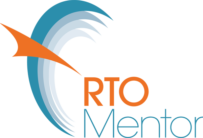The project was launched in April after the authority recorded an increase in the number of complaints it had received against registered training organisations (RTOs) approved to participate in the VET FEE-HELP scheme.
The report says that there has been a range of allegations of unethical and inappropriate action taken by RTOs in relation to the VET FEE-HELP loan scheme that is outside the scope of either the NVR Act or the Standards. The complex nature of the allegations means that responsibility for their investigation and response is shared across a number of agencies. This led ASQA to the conclusion that a more integrated response across the responsible agencies was likely to lead to better outcomes. ASQA is continuing to work with both the Department of Education and Training and Australian consumer law agencies including the Australian Competition and Consumer Commission (ACCC) to ensure that all aspects of concerning behaviour are addressed by the relevant authority.
ASQA had recorded 110 complaints relating to RTOs that were also approved for VET FEE-HELP in the period to 31 December 2014. These complaints relate to RTO behaviour that occurred prior to the introduction of the changes to the Standards and program guidelines. While the number of complaints as a proportion of VET FEE-HELP students, which was some 200,000 in 2014, may be relatively minor there may be under reporting of complaints by these students, many of whom may be reluctant to make a formal complaints.
Further, most complaints ASQA receives are related to its jurisdiction (e.g. complaints about the RTO’s compliance with the VET Quality Framework). Complaints about RTOs that are approved VET FEE-HELP providers are also directed to the Department of Education and Training and to the relevant consumer law agencies. ASQA understand that the Department of Education and Training received 888 complaints from 1 July 2014 to 30 September 2015.
The results of the targeted audits have indicated that there are levels of non-compliance with the national Standards among certain RTOs approved for VET FEE-HELP. The audit results can be broadly categorised into four key RTO groups.
- Seven RTOs were able to demonstrate full compliance with the relevant requirements of the VET Quality Framework and NVR Act at the conclusion of the audit: ASQA does not intend to take any further action in relation to these RTOs.
- Eight RTOs that were able to demonstrate full compliance with the relevant requirements of the VET Quality Framework and NVR Act at the conclusion of the audit: ASQA has determined that the imposition of certain conditions is warranted, based on the issues examined during the audit and the commitments made by these RTOs to address these issues.
- One RTO has had its registration cancelled under NVR Act and the Education Services for Overseas Students Act 2003 (ESOS Act). This RTO has been notified of this outcome and its ability to seek a review of this decision by the Administrative Appeals Tribunal.
- Five RTOs that are still subject to ongoing regulatory scrutiny. ASQA is currently finalising its regulatory scrutiny in relation to these RTOs.
In response to what it has learnt through its targeted audits of VET FEE-HELP RTOs, ASQA will implement a number of actions which it believes will ensure the risk of any unethical or inappropriate action taken by RTOs in relation to the VET FEE-HELP loan scheme is minimised.
In the media statement Mr Robinson said the authority would continue to closely monitor and target VET FEE-HELP-approved RTOs for regulatory scrutiny where complaints and other industry intelligence indicated cause for concern.
“ASQA will also enhance its cooperation and coordination with the Australian Competition and Consumer Commission, Australian consumer law agencies and the Department of Education and Training to share regulatory intelligence and coordinate regulatory action to ensure poor-quality providers are penalised to the full extent of the respective laws,” he said.
“ASQA will also use the findings from its project to develop a range of communication material aimed at helping providers improve their understanding of, and compliance, with the requirements of the relevant standards and giving students relevant information and assist them to make informed decisions.”
See more here
